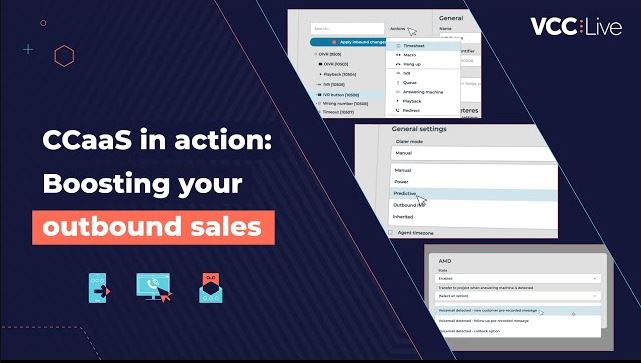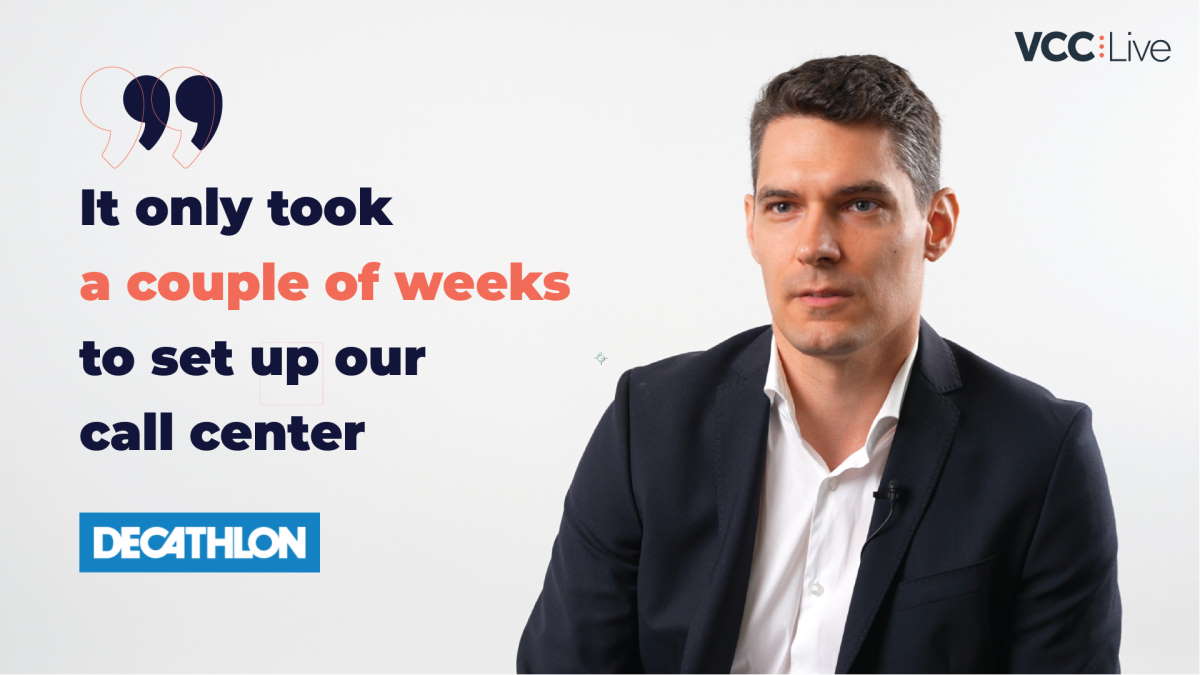There are bound to be uncertainties in the life of any organization. Indeed, recent mobility restrictions and government lockdowns have forced businesses to reevaluate a large part of their operations. This includes budget planning, employee management, and even elements of their customer journey experience.
The one thing in common with call centers and companies staying afloat in these times of uncertainty is that they all had a contingency plan in place. A contingency plan is a course of action on the part of an organization, created or devised for unexpected scenarios with the aim of helping the company maintain its operations.
Preparation is essential for the continued progress of any contact center or business. This is true whether you are a contact center with a suddenly immobile workforce, or a company facing a data breach. Having a contingency plan is important not only for the protection of the company but also for maintaining stability for employees and clients relying on your services.
Here are a few essential steps that should be part of your contingency planning, in order to help your contact center and business stay afloat in times of uncertainty.
Have a contingency team
Any plan is only as effective as the people executing it. Establish the right team for devising and managing your company’s contingency plan. You should have a group of people with a variety of skills, both technical and managerial. Make sure that your designated team is able to communicate their devised plan of action to the rest of your company.
Pay special attention to the nuts and bolts of your operations: your contact center agents! Make sure they know their roles when facing certain unexpected scenarios. This way, your entire company will be briefed on the situation and will understand how and why they need to implement your company-wide contingency plan.
Location and travel
The most important step in the case of unexpected circumstances is deciding where to continue holding your operations. Do you need to relocate? Has travel become difficult for your employees or completely impossible? Depending on the situation, you might have to create fully remote operations. Additionally, business travel plans might have to be reevaluated, canceled, or rescheduled. Due to recent mobility restrictions, most companies had to transition to fully remote operations in order to keep their businesses going. Have a plan for a remote work infrastructure in place, in order to be able to execute it as soon as you are confronted with government shutdowns. This might seem like a difficult task, especially in the case of contact centers. However, with the right technology in place, this should not be too much of a headache. As we have previously written, remote contact centers can be just as or even more efficient than on-premise systems. VCC Live software can help you establish a secure, safe, and efficient remote operation.
Identify points of operational failure
Identify the team members and roles that are essential for the upkeep of your operations. Make sure that these employees have the infrastructure supplied to them in order to be able to do their jobs in a secure manner. In case you have to go fully remote, this might mean having the right data security in place for both your contact center agents and your IT administrators. If you have to build a remote infrastructure, make sure that the providers you are using are secure in terms of their data management and fully GDPR compliant.
VCC Live has been working hard over the past years to make our company 100% GDPR compliant. We are also proud holders of the ISO27001 certificate that proves the highest levels of information and data security within an organization and in its processes, matching GDPR requirements introduced in 2018. We also hold the ISO22301 certificate that guarantees sustainable business management practices.
However, the certificate that really marks out VCC Live from many other contact center software providers, is the PCI DSS certificate that applies to any organization that accepts credit and debit card payments. We are proud to say that this year was the fourth year that we were able to fulfill the criteria required to be awarded the certificate again.
Communicate
Make sure to communicate any changes or updates to your team. During times of uncertainty, your employees will be seeking reassurance from managers, team leaders, and from the top of the organization. Be consistent and accurate when you communicate any changes or updates to your organizational policies and operations. This will help keep a level headed workforce, keeping them on task and motivated! At VCC Live, communications are handled by multiple features, such as ad-hoc news and popups giving urgent messages to employees. Additionally, VCC Live has the option of enabling mandatory newsreels upon the user’s entry.
Test your plan and prepare your employees
No matter how good your business’s contingency planning and your remote contact center infrastructure is, you need to implement regular emergency drills to test your contingency plan. This can help you practice scenarios, allowing you to test what works best and what needs to improve. In the event of a crisis, your agents and employees will know how to react, maintaining their own and others’ safety, minimizing downtime for your calls, and keeping your customers happy.
Recent unexpected mobility restrictions and government shutdowns have made most businesses realize the importance of contingency planning. Regardless of what sector your business is in, make sure that the fundamental parts of your operations are capable of staying afloat even in times of crisis. If you are dealing with customer contact, this means having the right planning and technology in place for the upkeep of your contact center. In the case of any business, the most important is that your clients feel that they can trust your operations and that they can reach out to you even during uncertain times.
Designate a contingency team and make a plan for how you would solve travel and location, identify points of operational failure, evaluate your supply chain, make sure to establish direct communication with your team, and always test your plan. Remember, practice makes perfect!



















